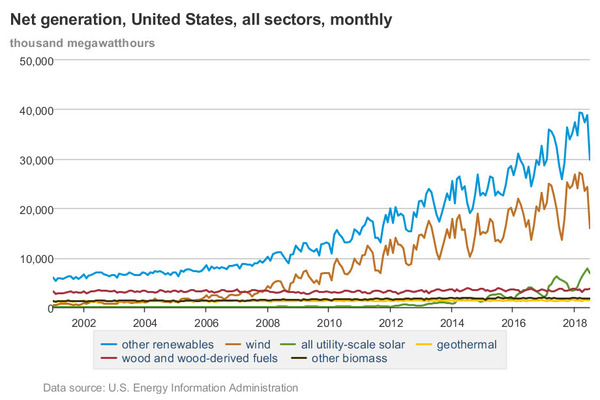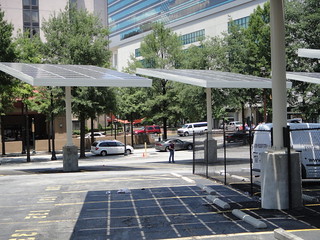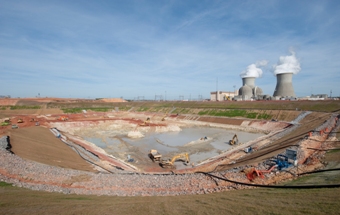Kennedy said he’d be for nukes if they were safe or economical, but they are neither, while solar and wind are both.
 After calling
the pro-nuke movie Pandora’s Promise a hoax,
he addressed “safe” by pointing out the movie’s
claimed former anti-nuke leaders were
never leaders while major nuclear utility executives
are indeed now anti-nuke leaders.
(For example, I met
former TVA Chairman S. David Freeman
in DC where he was testifying against nukes.)
Then Kennedy tore into
Southern Company’s three-legged nuclear boondoggle
and pointed out solar and wind are winning even against massive distortions
in the economic playing field caused by public service commissions
letting regulated utilities make the rest of us pay for their profits
on uneconomic nukes.
After calling
the pro-nuke movie Pandora’s Promise a hoax,
he addressed “safe” by pointing out the movie’s
claimed former anti-nuke leaders were
never leaders while major nuclear utility executives
are indeed now anti-nuke leaders.
(For example, I met
former TVA Chairman S. David Freeman
in DC where he was testifying against nukes.)
Then Kennedy tore into
Southern Company’s three-legged nuclear boondoggle
and pointed out solar and wind are winning even against massive distortions
in the economic playing field caused by public service commissions
letting regulated utilities make the rest of us pay for their profits
on uneconomic nukes.
Andrew Revkin posted on Youtube 19 June 2013,
Robert F. Kennedy Jr. & Director of Pandora’s Promise Spar Over Nuclear Power,
The last nuclear power plant constructed in the world was in Finland.
It cost about $11 billion a gigawatt.
Now I’m involved with construction right now of one of the largest
power plants that’s in north America which is in the Mojave Desert,
and it’s
a solar thermal plant, and it’s costing about $3 billion a
gigawatt….
There’s no individual and there’s no merchant utility that will build
a nuclear power plant, because they’re so expensive.
You can’t make money on it.
The only ones who will build them are regulated utilities like
the Southern Company in Georgia… because
they make money by spending money.
They get reimbursed for their capital costs plus 12 or 15% per year.
So they’ll construct it
once they get approval from the public utility commission.
Then they want to spend as much money on their capital costs
because they’re not paying for it.
You and I are paying for it.
I don’t think Bill Gates, or I saw Paul Allen was one of the
funders of this film, that they’re going to spend their own money
building one of these [nuclear] plants….
 You could make energy by burning prime rib,
but why would you take the most expensive way to do it.
You could make energy by burning prime rib,
but why would you take the most expensive way to do it.
And by last fall, the cost per gigawatt of solar photovoltaic (PV) panels
was already under $3 billion per gigawatt
so distributed solar PV makes just as much sense as massive desert
thermal solar, and both make far more economic sense than nuclear.
Plus costs of solar PV keep going down, pushing solar deployments
up like compound interest, while nukes always take years to build
and
always cost more than budgeted.
 Southern Company is the king of nuke cost overruns, going
26 times overbudget per unit on Vogtle 1 and 2
and already
19 months late and about a billion dollarsoverbudget on Vogtle 3 and 4.
Then there are the safety issues: a failed nuke can be Chernobyl
or Fukushima and many nukes
leak radioactive tritium into groundwater
and vent radiation into the air, while a failed solar plant is
a bunch of glass.
Southern Company is the king of nuke cost overruns, going
26 times overbudget per unit on Vogtle 1 and 2
and already
19 months late and about a billion dollarsoverbudget on Vogtle 3 and 4.
Then there are the safety issues: a failed nuke can be Chernobyl
or Fukushima and many nukes
leak radioactive tritium into groundwater
and vent radiation into the air, while a failed solar plant is
a bunch of glass.
 I got into the [solar] industry
to show that there was an alternative and that the alternative
was economically viable.
And not only that, on
a level playing field,
if we weren’t giving them the subsidies to the incumbents,
our technologies would beat them and soundly.
They simply couldn’t compete.
I got into the [solar] industry
to show that there was an alternative and that the alternative
was economically viable.
And not only that, on
a level playing field,
if we weren’t giving them the subsidies to the incumbents,
our technologies would beat them and soundly.
They simply couldn’t compete.
He called the movie’s claims that solar and wind don’t work
one of the movie’s many big lies
because even without a level playing field we already built more
solar and wind power in this country last year “than we did all
of the incumbents combined”.
Plus
you’ve got to fuel fossil or nuclear plants, not to mention
the toxic waste issues,
while once you build solar or wind “it’s free energy forever”.
Kennedy also pointed out the electric grid in the U.S. could be rebuilt to deliver solar and wind power as needed for less than has already been spent on breeder reactors that are no longer in use.
The filmmaker made no attempt to rebut any of Kennedy’s points about existing solar and wind technologies that already beat nukes, coal, and natural gas, instead going on about pie-in-the-sky modular reactors.
This all illustrates why
the Georgia Public Service Commission
needs to stop letting Georgia Power and Southern Company suck radioactive
profits at the public teat and make them
get on with replacing coal with solar
instead of
letting old coal plant sites sit unused for more than a decade.
Oh, and GA PSC needs to halt the Plant Vogtle nuke boondoggle,
which is even worse than
Southern Company’s Kemper Coal plant in Mississippi
as a huge transfer of wealth from the people of the state to a monopoly.

A monopoly that is supposed to be regulated as a public service.
By the Public Service Commission whose Commissioners
accept massive campaign contributions from employees and law firms
of the utilities they regulate.
It’s time for GA PSC to bat away the haze of coal smoke and the radioactive
taint that surrounds them
and go to bat against corruption and for the people of Georgia.
-jsq













